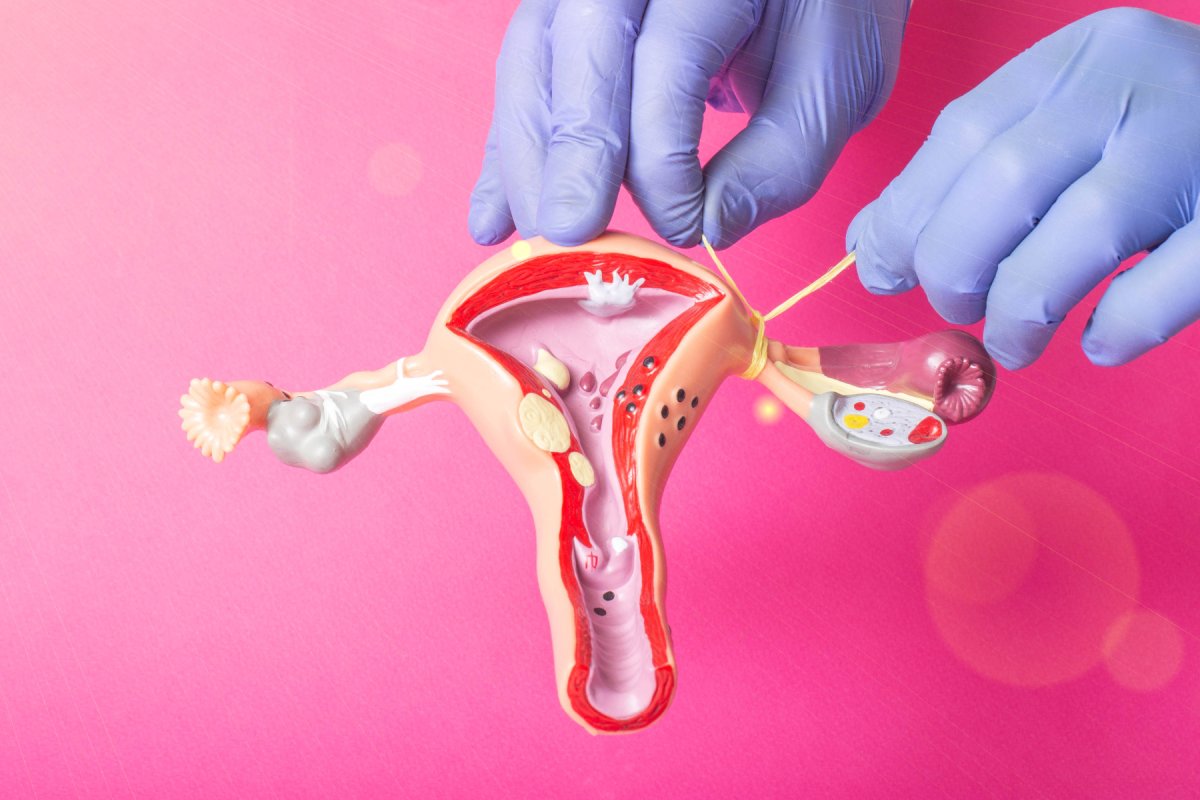Losing the constitutional right to an abortion after Roe v. Wade was overturned has led to many more women resorting to getting their tubes tied.
An increasing trend in permanent contraception procedures has been seen in both men and women aged between 18 and 30 since the US Supreme Court's decision, but the increase in women was twice that seen in men, according to a new paper in the journal JAMA Health Forum.
Since Dobbs v Jackson Women's Health Organization in June 2022, which removed the protection of rights to abortion for Americans, increasing numbers of U.S. states have completely banned abortions, with many others enforcing limited access to the procedure.

States where abortion is totally banned after conception—with no exceptions for rape or incest—include Alabama, Arkansas, Kentucky, Louisiana, Missouri, South Dakota, Oklahoma, Tennessee, and Texas. There are some exceptions for rape and incest in Indiana, Mississippi, West Virginia, and North Dakota, but often only if reported to law enforcement. On April 9, Arizona joined the list of states where abortions are banned with nearly no exceptions.
Abortion is banned after 6 weeks of pregnancy in Georgia and South Carolina, 12 weeks in Nebraska and North Carolina, 15 weeks Florida, and 18 weeks in Utah. Florida is due to reduce their allowance to a six-week ban on May 1.
Many other states where abortion is legal have the caveat of it needing to be before fetal viability, or around 22 to 24 weeks. It is legal with no limit in Alaska, Colorado, New Jersey, Oregon, New Mexico, and Vermont.
In the wake of this ruling, the study found that there was an "abrupt" increase in permanent contraception procedures being performed, especially in women.
"Prior to Dobbs, the monthly permanent contraception rate increased by 2.84 and 1.03 procedures per 100,000 person-months among female and male patients, respectively," the researchers—hailing from the University of Pittsburgh—wrote in the paper.
"Dobbs was associated with an immediate level increase of 58.02 procedures and 5.31 procedures per month among female patients. Among male patients, it was associated with a level increase of 26.99 procedures and no significant change in the number of procedures per month."
Permanent contraceptive procedures in women include tubal ligation, or "getting your tubes tied", which involves a woman's fallopian tubes being either cut, tied, or blocked to prevent eggs from traveling from the ovaries into the fallopian tubes, where they could be fertilized by sperm.
Tubal ligation is considered a permanent form of contraception, although in some cases, it may be possible to reverse the procedure through reversal surgery or in vitro fertilization (IVF).
In men, a vasectomy is one such permanent contraception method, which involves the cutting, sealing, or otherwise blocking of the vas deferens, which are the tubes that carry sperm from the testicles to the urethra, preventing sperm from entering the seminal fluid (semen), and thus avoiding pregnancy.
Some of the limitations of this study include the fact that it does not isolate whether the women were Black, Indigenous, Hispanic, disabled, immigrant, and low-income women, and therefore if their backgrounds had any impact on their contraceptive decision-making.
However, this new research showing the spike in permanent contraception rates highlights how there may have been a policy-induced change in contraceptive preferences, the researchers said.
"Dobbs may have also increased a sense of urgency among individuals who were interested in permanent contraception before the decision," the researchers wrote. "Changes in contraceptive decision-making must be considered to understand the short- and long-term implications of Dobbs on reproductive autonomy"
Do you have a tip on a science story that Newsweek should be covering? Do you have a question about abortion rights? Let us know via science@newsweek.com.
Uncommon Knowledge
Newsweek is committed to challenging conventional wisdom and finding connections in the search for common ground.
Newsweek is committed to challenging conventional wisdom and finding connections in the search for common ground.
About the writer
Jess Thomson is a Newsweek Science Reporter based in London UK. Her focus is reporting on science, technology and healthcare. ... Read more
To read how Newsweek uses AI as a newsroom tool, Click here.








